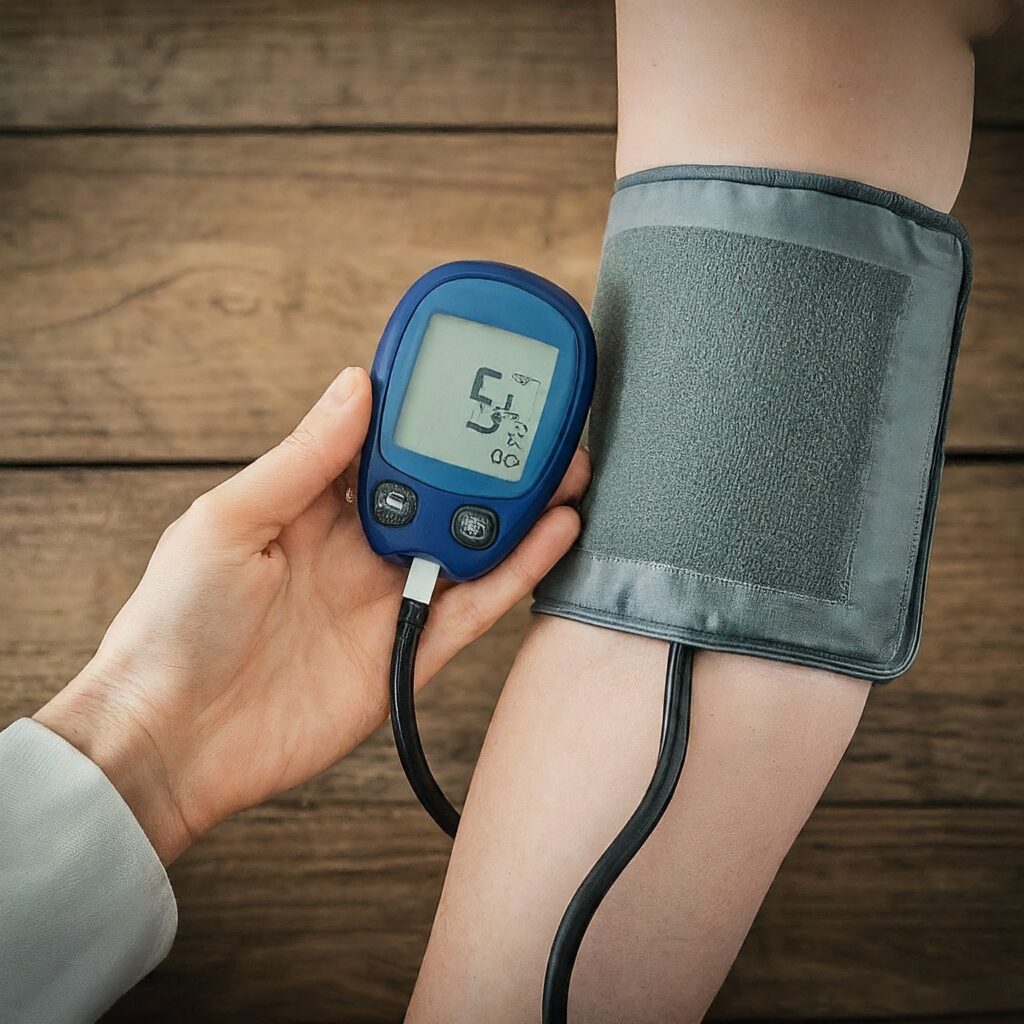High Blood Pressure (Hypertension)
High blood pressure, or hypertension, is a disorder in which the force of your blood on your artery walls is consistently too high. It is sometimes referred to as the “silent killer” because it rarely produces symptoms.
How is blood pressure measured?
Blood pressure is measured in millimeters of mercury (mmHg) and is written as two numbers:
- Systolic pressure: The top number, which measures the pressure when your heart beats.
- Diastolic pressure: The bottom number, which measures the pressure when your heart rests between beats.
Normal blood pressure is typically around 120/80 mmHg.
High blood pressure is generally considered to be 130/80 mmHg or higher.
What causes high blood pressure?
Many factors can contribute to high blood pressure, including:
- Age
- Genetics
- Obesity
- Lack of physical activity
- Smoking
- Excessive salt intake
- Stress
- Certain medical conditions
Why is high blood pressure dangerous?
High blood pressure can damage your heart, blood vessels, kidneys, and brain. It can increase your risk of:
- Heart attack
- Stroke
- Heart failure
- Kidney disease
How to protect us
Protecting ourselves from high blood pressure (BP) requires adopting good lifestyle practices and being proactive about preventive healthcare. Here are some practical methods to help prevent these health issues:
- Maintain a Healthy Diet:
- Eat Balanced Meals: Include a variety of fruits, vegetables, whole grains, lean proteins, and healthy fats in your diet.
- Limit Salt and Sugar: Reduce intake of processed foods high in sodium and sugars, which can contribute to high BP and other health problems.
- Stay Physically Active:
- Exercise Regularly: Aim for at least 150 minutes of moderate-intensity aerobic activity (like brisk walking) or 75 minutes of vigorous-intensity activity (like running) per week.
- Incorporate Strength Training: Include muscle-strengthening activities on two or more days a week.
- Manage Stress:
- Practice Relaxation Techniques: Incorporate techniques such as deep breathing, meditation, or yoga into your daily routine to manage stress effectively.
- Maintain Work-Life Balance: Strive for a balance between work, family, and personal time to prevent chronic stress.
- Monitor Blood Pressure and Health Markers:
- Regular Check-ups: Visit your healthcare provider regularly for check-ups and screenings to monitor your blood pressure, cholesterol levels, and overall health.
- Know Your Numbers: Understand your blood pressure readings and take action if they are consistently high or outside the healthy range.
- Avoid Harmful Substances:
- Quit Smoking: If you smoke, seek help to quit smoking as it significantly increases the risk of cardiovascular diseases and other health problems.
- Limit Alcohol: Drink alcohol in moderation, if at all, as excessive consumption can raise blood pressure and contribute to other health issues.
- Maintain a Healthy Weight:
- Achieve and Maintain a Healthy BMI: Aim for a body mass index (BMI) within the healthy range (18.5 to 24.9 kg/m²) through a combination of diet and exercise.
- Get Enough Sleep:
- Prioritize Sleep: Aim for 7-9 hours of quality sleep each night. Poor sleep can contribute to high BP and other health problems.
- Stay Informed and Educated:
- Learn About Health Risks: Educate yourself about the risk factors for disabilities and high BP, and take proactive steps to mitigate these risks.
- Follow Medical Advice: If you have a chronic condition or risk factors, follow your healthcare provider’s advice and treatment plan diligently.
By incorporating these habits into your daily life and being proactive about your health, you can significantly reduce the risk of disabilities and high blood pressure, promoting a healthier and more fulfilling life.
